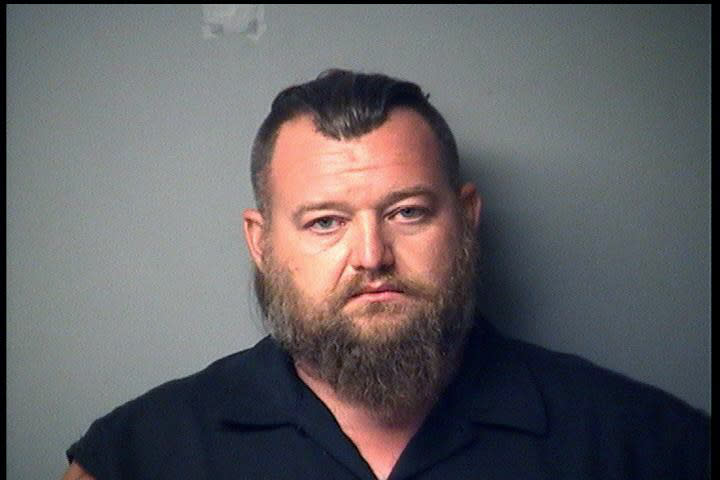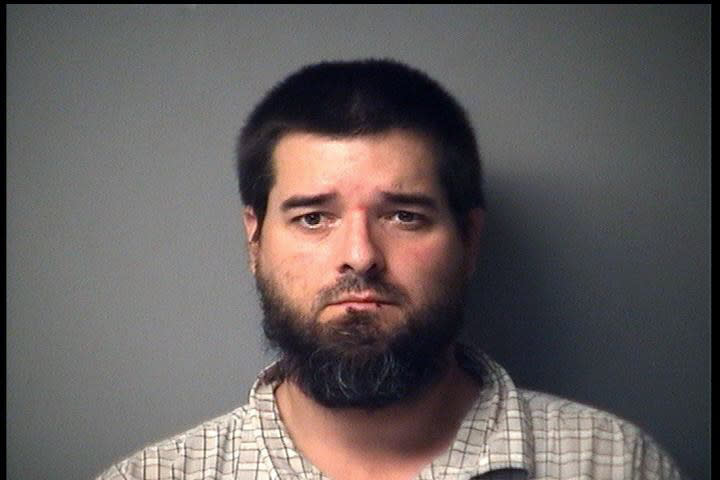Images of war: 2-weeks of brutal fighting between Armenia and Azerbaijan left hundreds dead before ceasefire declared
Sophia Ankel and Naina Bhardwaj
11 hours ago

A decades-long conflict between Armenia and Azerbaijan re-ignited on September 27 with both sides fighting for control over the Nagorno-Karabakh region.
Nagorno-Karabakh lies within Azerbaijan but has been under the control of ethnic Armenian forces since the end of a separatist war in 1994.
The city that was hit the worst was Nagorno-Karabakh's capital Stepanakert, where most residents were left without electricity...




Sophia Ankel and Naina Bhardwaj
11 hours ago
An ethnic Armenian soldier fires an artillery piece during fighting with Azerbaijan's forces in the breakaway region of Nagorno-Karabakh, September 29, 2020. Defense Ministry of Armenia/via REUTERS
Armenia and Azerbaijan agreed to a ceasefire starting on Saturday, two weeks after brutal clashes killed hundreds of people and displaced thousands more.
Armenia and Azerbaijan agreed to a ceasefire starting on Saturday, two weeks after brutal clashes killed hundreds of people and displaced thousands more.
A decades-long conflict between Armenia and Azerbaijan re-ignited on September 27 with both sides fighting for control over the Nagorno-Karabakh region.
Nagorno-Karabakh lies within Azerbaijan but has been under the control of ethnic Armenian forces since the end of a separatist war in 1994.
It marked the biggest escalation since the 1990s and involves heavy artillery, warplanes, and drones.e region during this time of conflict.
Armenia and Azerbaijan agreed to a ceasefire starting on Saturday after two weeks of brutal fighting that killed hundreds of people and displaced thousands more.
The deal agreed in Moscow did not make a clear how long the ceasefire was due to hold for and there were reports of continued fighting in the mountainous Nagorno-Karabakh region, according to Reuters.
Armenia and Azerbaijan have been embroiled in a decades-long conflict.
Nagorno-Karabakh lies in Azerbaijan but its 140,000 population is mostly ethnic Armenians and it has been under the control of Armenian forces since the end of a separatist war in 1994.
The recent clashes marked the biggest escalation since the 1990s.
Scroll down to see 13 photos of what happened in the region.
Armenia and Azerbaijan have agreed to a ceasefire starting on Saturday after two weeks of fighting for control over the Nagorno-Karabakh region.

Armenia and Azerbaijan agreed to a ceasefire starting on Saturday after two weeks of brutal fighting that killed hundreds of people and displaced thousands more.
The deal agreed in Moscow did not make a clear how long the ceasefire was due to hold for and there were reports of continued fighting in the mountainous Nagorno-Karabakh region, according to Reuters.
Armenia and Azerbaijan have been embroiled in a decades-long conflict.
Nagorno-Karabakh lies in Azerbaijan but its 140,000 population is mostly ethnic Armenians and it has been under the control of Armenian forces since the end of a separatist war in 1994.
The recent clashes marked the biggest escalation since the 1990s.
Scroll down to see 13 photos of what happened in the region.
Armenia and Azerbaijan have agreed to a ceasefire starting on Saturday after two weeks of fighting for control over the Nagorno-Karabakh region.
Black smoke rises near buildings during a military conflict over the breakaway region of Nagorno-Karabakh on October 4, 2020. Reuters
Clashes between Azerbaijani and Armenian forces in the region started up on September 27.
Source: Independent
Nagorno-Karabakh is a remote mountainous region within Azerbaijan which has been under the control of ethnic Armenian forces for over fifteen years after becoming autonomous during the Soviet era.

Clashes between Azerbaijani and Armenian forces in the region started up on September 27.
Source: Independent
Nagorno-Karabakh is a remote mountainous region within Azerbaijan which has been under the control of ethnic Armenian forces for over fifteen years after becoming autonomous during the Soviet era.
Nagorno-Karabakh is located in the Caucasus, a mountainous region jammed between Turkey, Russia, and Iran. Google Maps
For centuries, both Christians and Muslims, have fought for power over Nagorno-Karabakh.
While the majority of people from Azerbaijan are Muslim, Nagorno-Karabakh's 140,000 inhabitants are Armenian and ethnically Christian.
Sources: BBC, The Guardian
In the last two weeks, the fighting in the region has started up once again after Azerbaijani forces attempted to recapture territories occupied by Armenia.

For centuries, both Christians and Muslims, have fought for power over Nagorno-Karabakh.
While the majority of people from Azerbaijan are Muslim, Nagorno-Karabakh's 140,000 inhabitants are Armenian and ethnically Christian.
Sources: BBC, The Guardian
In the last two weeks, the fighting in the region has started up once again after Azerbaijani forces attempted to recapture territories occupied by Armenia.
A photo released by the Armenian Foreign Ministry shows a man, said to be a civilian, from Nagorno-Karabakh receiving medical treatment on September 27, 2020. Reuters
Both sides have been accusing each other of expanding the hostilities beyond Nagorno-Karabakh and targeting civilians.
Source: LA Times
Heavy artillery, tanks, missiles, and drones were also involved for the first time in both Armenia and Azerbaijan.

Both sides have been accusing each other of expanding the hostilities beyond Nagorno-Karabakh and targeting civilians.
Source: LA Times
Heavy artillery, tanks, missiles, and drones were also involved for the first time in both Armenia and Azerbaijan.
A sapper works next to an unexploded BM-30 Smerch rocket allegedly fired by Armenian forces near the Mingachevir Hydro Power Station in the town of Mingachevir, Azerbaijan, on October 5, 2020. REUTERS/Stringer
Both sides have been accused of also using cluster bombs, which have been banned under the convention on cluster munitions (CCM).
Cluster bombs are particularly dangerous because they can fail to explode on impact, meaning they can pose a threat to civilians long after conflicts have ended.
Source: The Guardian
This was the first time since the 1990s that populated areas in Nagorno-Karabakh were hit by missile strikes.

Both sides have been accused of also using cluster bombs, which have been banned under the convention on cluster munitions (CCM).
Cluster bombs are particularly dangerous because they can fail to explode on impact, meaning they can pose a threat to civilians long after conflicts have ended.
Source: The Guardian
This was the first time since the 1990s that populated areas in Nagorno-Karabakh were hit by missile strikes.
Man looks down at the rubble from his destroyed home in Stepanakert, Nagorno-Karabakh, on October 7, 2020. Getty
An official from Nagorno-Karabakh said earlier this week that the shelling has resulted in thousands of people being displaced from their homes.
"According to our preliminary estimates, some 50% of Karabakh's population and 90% of women and children — or some 70,000-75,000 people — have been displaced," they said, according to the Guardian.
Source: The Guardian
Both sides accused each other of deliberately attacking civilian buildings.

An official from Nagorno-Karabakh said earlier this week that the shelling has resulted in thousands of people being displaced from their homes.
"According to our preliminary estimates, some 50% of Karabakh's population and 90% of women and children — or some 70,000-75,000 people — have been displaced," they said, according to the Guardian.
Source: The Guardian
Both sides accused each other of deliberately attacking civilian buildings.
Firefighters work as a building in a residential area burns after night shelling on October 3, 2020. AP
Source: AP
Armenia accused Azerbaijan on Thursday of shelling a historic cathedral in Nagorno-Karabakh.

Source: AP
Armenia accused Azerbaijan on Thursday of shelling a historic cathedral in Nagorno-Karabakh.
A hole made by a shell in the roof of the Holy Savior Cathedral during a military conflict, in Shushi, outside Stepanakert, Nagorno-Karabakh, Thursday, October 8, 2020. AP
Azerbaijan however has denied it shelled the cathedral.
"The information about the damage to the church in Shusha has nothing to do with the military actions of the Azerbaijani army," the defense ministry said in a statement, according to Al Jazeera.
"Unlike the armed forces of Armenia … the Azerbaijani army does not target historical, cultural, or especially religious buildings and monuments," they added.
A group of children was inside the cathedral at the time of the bombing, but they were not wounded, according to local media reports.
"There is no military, nothing strategic here, how can you target a church?" one resident said, according to the Guardian.
Source: Associated Press
Azerbaijan however has denied it shelled the cathedral.
"The information about the damage to the church in Shusha has nothing to do with the military actions of the Azerbaijani army," the defense ministry said in a statement, according to Al Jazeera.
"Unlike the armed forces of Armenia … the Azerbaijani army does not target historical, cultural, or especially religious buildings and monuments," they added.
A group of children was inside the cathedral at the time of the bombing, but they were not wounded, according to local media reports.
"There is no military, nothing strategic here, how can you target a church?" one resident said, according to the Guardian.
Source: Associated Press
The city that was hit the worst was Nagorno-Karabakh's capital Stepanakert, where most residents were left without electricity...
Civilians gather in the basement of a building used as a bomb shelter in Stepanakert, Nagorno-Karabakh, on October 5, 2020. Areg Balayan/ArmGov/PAN Photo/Handout via Reuters
Source: BBC
...and others were forced to take shelter in basements and bunkers.

Source: BBC
...and others were forced to take shelter in basements and bunkers.
People watch the state TV while sleeping in a bomb shelter to protect themselves from shelling in Stepanakert, Nagorno-Karabakh, on September 28, 2020. AP
Source: BBC
More than 300 people died in the conflict, although casualty claims have not been independently verified.
Source: BBC
More than 300 people died in the conflict, although casualty claims have not been independently verified.
Firefighters put out a car that is on fire in Stepanakert, Nagorno Karabakh on October 4, 2020. AP Sources: BBC, Al-Jazeera
However, human rights organizations fear that the official death toll on both sides is actually much higher.
However, human rights organizations fear that the official death toll on both sides is actually much higher.
Local people take part in a funeral ceremony on October 8, 2020, for an Azerbaijani serviceman who died in action in one of the villages bordering on Nagorno-Karabakh Getty
Source: BBC
After negotiations in Moscow, which were mediated by Russia's foreign minister, both sides agreed to a ceasefire starting on Saturday, at 12 pm local time.
Source: BBC
After negotiations in Moscow, which were mediated by Russia's foreign minister, both sides agreed to a ceasefire starting on Saturday, at 12 pm local time.
Russian Foreign Minister Sergey Lavrov attends a joint news conference with his Finnish counterpart Pekka Haavisto in the House of the Estates in Helsinki. Reuters
Both sides have been asked to exchange prisoners and bodies of those killed in the conflict.
"Azerbaijan and Armenia begin substantive negotiations with the purpose of achieving a peaceful settlement as soon as possible," Lavrov told reporters, according to the Guardian.
Source: The Guardian
However, within minutes of the ceasefire taking effect, both sides have accused each other of breaking it, raising doubts about how serious the truce will turn out to be.

Both sides have been asked to exchange prisoners and bodies of those killed in the conflict.
"Azerbaijan and Armenia begin substantive negotiations with the purpose of achieving a peaceful settlement as soon as possible," Lavrov told reporters, according to the Guardian.
Source: The Guardian
However, within minutes of the ceasefire taking effect, both sides have accused each other of breaking it, raising doubts about how serious the truce will turn out to be.
Local residents take shelter in a dugout in the city of Terter, Azerbaijan on October 6, 2020. REUTERS/Umit Bektas
Five minutes after the truce officially took hold, Armenia accused Azerbaijan of shelling one of its settlements, while Karabakh forces alleged that Azeri forces had launched a new offensive.
Source: Reuters
Five minutes after the truce officially took hold, Armenia accused Azerbaijan of shelling one of its settlements, while Karabakh forces alleged that Azeri forces had launched a new offensive.
Source: Reuters






















